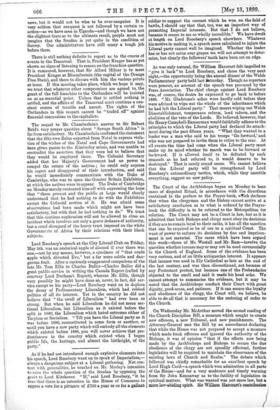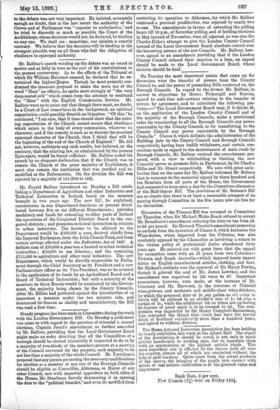On Wednesday Mr. McArthur moved the second reading of the
Church Discipline Bill, a measure which sought to create new offences, a new Tribunal, and new punishments. The Attorney-General met the Bill by an amendment declaring that while the House was not prepared to accept a measure which made fresh offences and ignored the authority of the Bishops, it was of opinion "that if the efforts now being made by the Archbishops and Bishops to secure the due obedience of the clergy are not speedily effectual, further legislation will be required to maintain the observance of the existing laws of Church and Realm." The debate which followed was chiefly remarkable for an excellent speech by Lord Hugh Cecil—a speech which won admiration in all parts of the House—and for a very moderate and timely warning from Sir John Kennaway as to the futility of legislation in spiritual matters. What was wanted was not more law, but a more law-abiding spirit. Sir William Harcourt's contribution to the debate was not very important. He insisted, accurately enough no doubt, that in the last resort the authority of the Crown and of Parliament was "superior to ecclesiastics," and he tried to discredit as much as possible the Court of the Archbishops, whose decisions would not, he declared, be binding on any one. We shall see ; meantime, our opinion is exactly contrary. We believe that the decisions will be binding in the strongest possible way on all those who feel the obligation of obedience to episcopal authority.







































 Previous page
Previous page